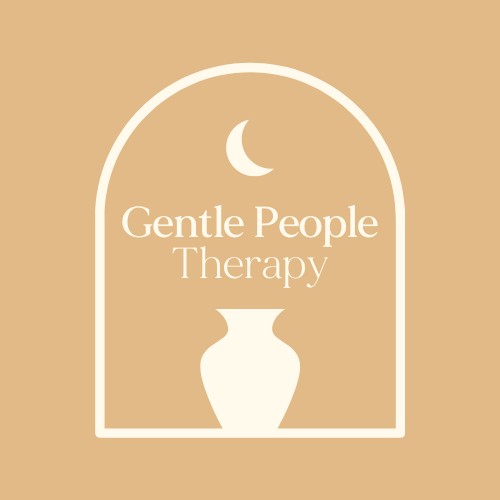Alright – so today we’ve got the honor of introducing you to Jessica Faith Achugbue, LMFT, PMH-C. We think you’ll enjoy our conversation, we’ve shared it below.
Hi Jessica, thanks for joining us today. Let’s go back in time to when you were an intern or apprentice – what’s an interesting story you can share from that stage of your career?
The “story” that comes to mind is really more a cluster of encounters that move me whenever I think about them, because they highlight my “why!” I started doing psychotherapy with clients during my graduate school internships (which we call “traineeship” in the marriage and family therapy world). My first traineeship placement was in a school-based program, in which I conducted individual and group therapy at a high school and an elementary school, and parenting support for the clients’ caregivers. There was a lot of interdisciplinary collaboration involved, and I remember checking in with the teachers and hearing some of them describe the differences they noticed in the clients in their classrooms since beginning therapy – for example, kids being able to enjoy classroom activities without experiencing anxiety attacks anymore. When the schools switched to virtual learning during the beginning of the COVID-19 pandemic, I did a lot of parent coaching over the phone, and was told about how the children were using some of the coping and self-empowerment skills that we had worked on during sessions to help themselves adjust to the massive changes we were collectively experiencing. And I had the opportunity to support the parents in finding ways to care for their own mental health as they supported their children during the chaos. Like many, there have been many moments in which I’ve felt helpless during the pandemic, wishing that I could stop the devastation; although I couldn’t stop what was happening on a macro level, having some tools to help the clients and their families create more peacefulness within themselves and their households made me feel that I was contributing to some type of positive change during a very dark time.


As always, we appreciate you sharing your insights and we’ve got a few more questions for you, but before we get to all of that can you take a minute to introduce yourself and give our readers some of your back background and context?
Sure! I’m a psychotherapist – specifically, a licensed marriage and family therapist, certified perinatal mental health specialist, and certified EMDR therapist. I have a private practice called Gentle People Therapy, where I focus on supporting women, pregnant and postpartum mothers, and parents of young children, helping them heal from painful life experiences that happened in the past and/or that occur during their perinatal periods, so they can feel more peaceful and confident in whatever life chapters they’re currently in. I practice in-person in Long Beach and work with clients throughout California via telehealth sessions. I primarily use eye movement desensitization and reprocessing (EMDR) therapy, which is a mind-body approach that helps lessen the impact of upsetting experiences, steady the nervous system, and adjust negative false beliefs we develop about ourselves. I have advanced training in prenatal and postpartum mood and anxiety disorders and the use of EMDR therapy to treat them. Early parenthood is a major life transition; it’s a life stage in which there is extra vulnerability to mental health challenges, but it’s also an amazing time for healing and transformation!
I think I’m most proud of the ways that I’ve been able to combine these specialty areas to offer effective care for my clients. I strongly believe that trauma work and perinatal mental health go hand-in-hand, so I’ve strived to build a clinical “toolkit” that matches those needs well. Clients have shared that they have been able to feel more at ease during their pregnancies, more confident and even excited about their upcoming birth experiences, more confident about parenting and navigating the challenges that come with it, more enjoyment in bonding with their little ones, and an overall sense of release and relief in their daily lives after suffering from intense anxiety or trauma symptoms.



Putting training and knowledge aside, what else do you think really matters in terms of succeeding in your field?
I know there’s a lot of talk about “niches” in the business world, but it’s for a good reason! I really do believe that the key to a strong business in the therapy realm is identifying your specific strengths, interests, skills, and knowledge – and the groups of people best served by them – and then allowing your marketing and networking to be led by the needs of your target client.
Can you tell us about what’s worked well for you in terms of growing your clientele?
In that same vein, feeling confident about who I serve well and thinking of what their needs are and how those needs can be met has been the most helpful. That, and remembering that “No man is an island, entire of itself” (quote from a poem by John Donne). When launching my business and starting to network, I kept in mind that the clients I serve are also being cared for by lactation consultants, birthworkers, physical therapists, medical doctors, psychiatrists, other psychotherapists, etc. and that connecting with other care professionals is helpful not only for meeting new clients to potentially add to my practice, but also for the purpose of learning from others who have a wealth of knowledge that benefits my clients and for building a library of resources to refer my clients to.
Contact Info:
- Website: www.gentlepeopletherapy.com
- Instagram: www.instagram.com/gentlepeopletherapy
Image Credits
Camryn Clair Photography


